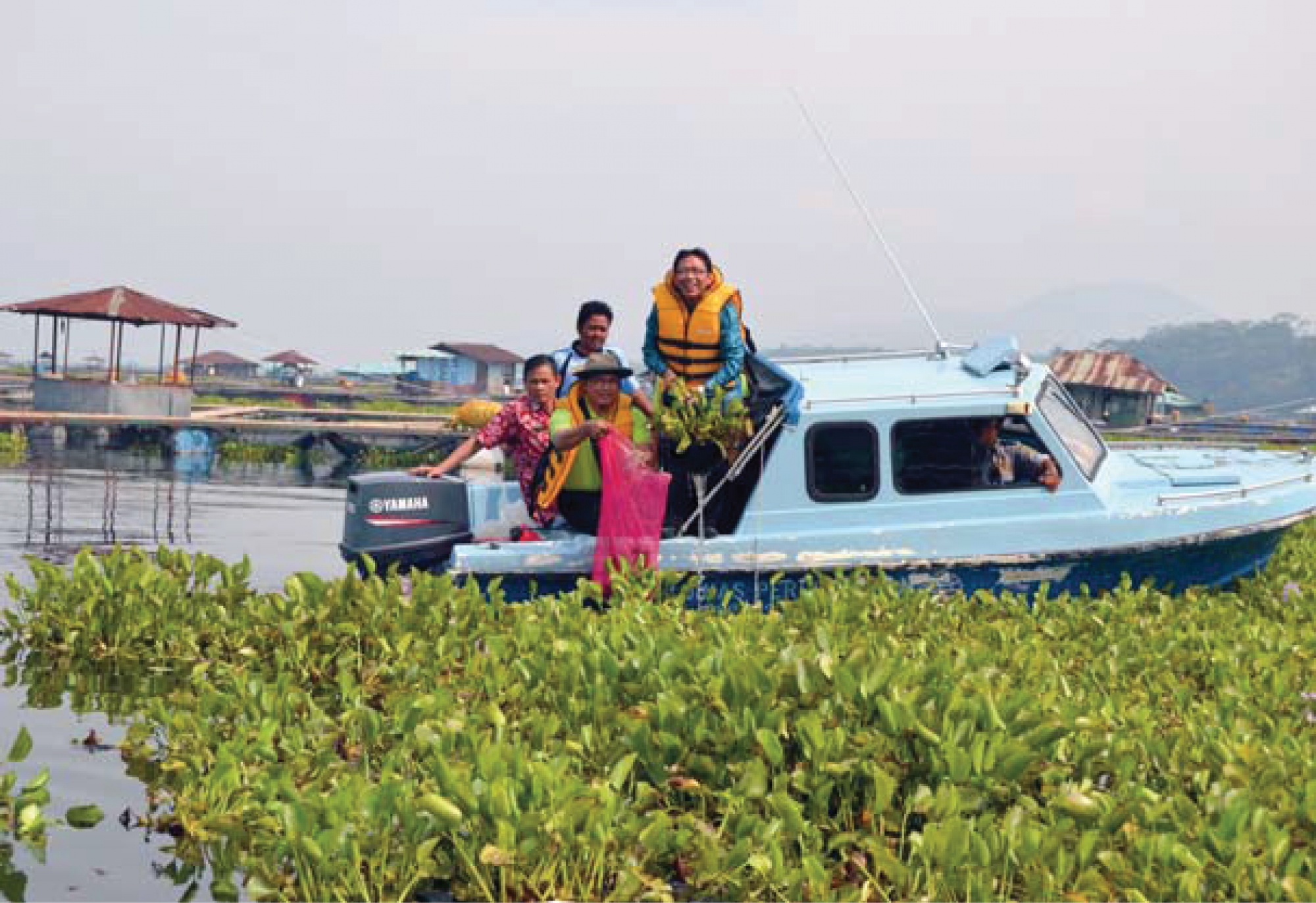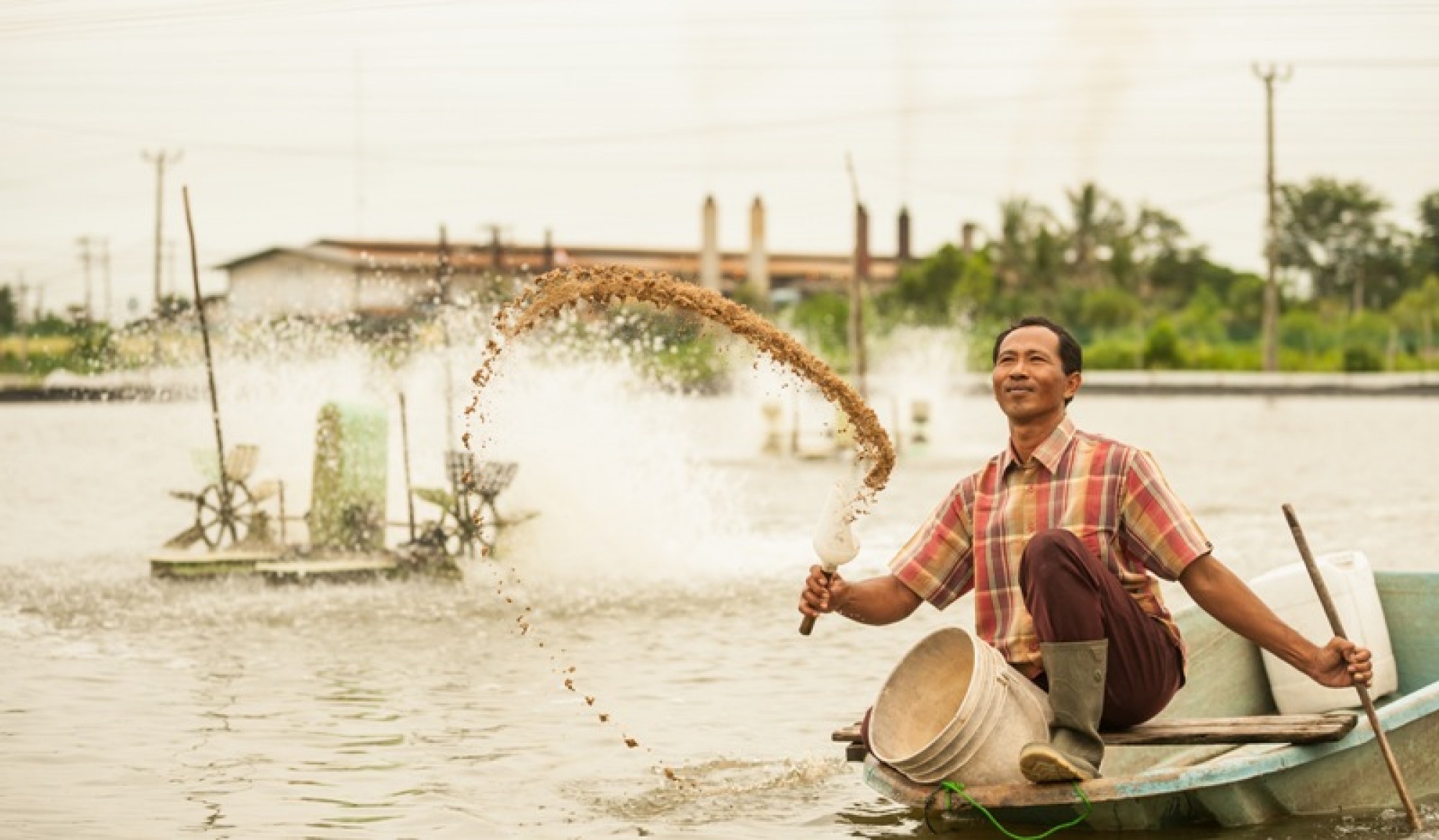
19 December 2016
Preserving Cirata with The Fodder Industry
Gabungan Perusahaan Makanan Ternak (GPMT) divisi Akuakultur (translated: Aquaculture Division of The Association of Fodder Companies) cleans Cirata Reservoir to protect environmental sustainability and aquaculture businesses.
The Aquaculture division of GPMT carries a long-term commitment to preserve aquaculture activities in West Java’s Cirata Reservoir. The annual cleaning activity is one of the many programs that demonstrate the association’s commitment. This year, the program was held in Gandasoli village, Cirata, West Java (5 – 6/6).
Several parties took part in this activity, including Directorate General of Aquaculture, Ministry of Maritime Affairs and Fisheries, Fisheries Department of West Java Province, Fisheries Department of West Bandung, Cianjur, and Purwakarta District, Masyarkat Peduli Cirata (MPC) (translated: Cirata Care Community), and Badan Pengelola Waduk Cirata (BPWC) (translated: Cirata Reservoir Governing Body). “This cleaning activity that involves almost all parties is a regular in our agenda, and we’ll continue to execute the program,” declares Anang Hermanta, the Head GPMT’s Fodder Division.
It goes beyond waste and garbage, the rapid growth of water hyacinth has become a critical issue that covets attention. The Directorate of Fish and Environmental Health, Maskur, stated that water hyacinth spreads faster than its countermeasures, resulting in a water plant blanket that covers fifty to sixty percent of the Cirata reservoir. The fact that these plants had spread near the turbine area of the Pembangkit Listrik Tenaga Air (PLTA) (translated: Hydroelectric Power Plant) is even more troubling because it can interfere with the electricity supply to West Java and its surrounding area.
In addition, water hyacinth disrupts the oxygen supply required by the fish farm. “We have come up with a number of solutions to utilize water hyacinth,” Maskur revealed. He also adds that Cirata is a national asset that needs to be maintained by all related parties. “This cleaning activity that involves GPMT, Formikan, MPC, and all relevant departments and associations is a good example. The Directorate General of Aquaculture also use this opportunity to replenish grass carp, milkfish, nilem fish, and several other species in order to help control planktons and water pests,” Maskur asserted.
Real Contributions
GPMT runs the program consistently since the last 5 years with at least two annual cleanings, covering not only Cirata, but also the Jatiluhur reservoir, and possibly Maninjau Lake and Toba Lake in the coming years. Some of participating companies include Central Proteina Prima, Sinta Prima Feedmill, Cargill, Suri Tani Pemuka, Feedmill Indonesia, Wonokoyo, Luxindo/Global, Invivo/Guyofeed, and Matahari Sakti.
Noticing the constant capacity decline of Cirata reservoir as a farming facility, Anang stated that ideally, cleaning is done on a daily basis. “We don’t have the capability to execute this on our own, farmers also need to take this issue into their account for the preservation of their farm,” Anang expressed.
Edi Prijono, the Head of GPMT Fish Feed Subdivision, added that GPMT participates not only in the cleaning activity, but also in assuring quality feed availability that meets the government’s assigned standard (SNI), which includes communicating information and policies from the government to the farmers.
“Our wide spread sales team often took the role of a consultant, providing advice and recommendations for better farming as well as illustrating CBIB application for business success, even farming finance management,” Edi explained.
Edi wishes the Cirata cleaning activity could be seen as an example by fish farmers in order to be more attentive in preserving the reservoir. He also calls for the government to conduct a much-needed counseling and seminars covering practical knowledge (not study theories). “We hope that KKP supports GPMT because this activity assists their agenda to increase fish farming production,” he stated.
Asep Sulaiman, the Head of MPC West Java District concludes that the collaboration between MPC and GPMT progresses successfully. “We are now focusing on cleaning and conserving Cirata. I think the contributions that cover counseling, sharing sessions, and other similar activities is quite satisfactory,” Asep clarified.
Utilization of Water Hyacinth
In an effort to increase the value of water hyacinth, The Head of Sukabumi Fresh Water Aquaculture Center, Saripin, explained that his team has developed a technology to convert water hyacinth into an alternative feed material, a substitute to the high-priced siftings. The research that was first commenced in January 2015 in BPBAT Sukabumi is now producing 1 to 2 quintals of products every day.
“We would like to implement our technology to help the community in Cirata with the supervision of the association,” Saripin disclosed. According to Saripin, the technology is fairly simple; the process starts with mincing the water hyacinth, followed by a drying procedure. The minced and dried water hyacinth are then floured and formulated into pellets.
Anang welcomes the offer and believes that it will be recognized as an exciting new technology by feeding factories. “GPMT will definitely supports this technology, assuming that it can produce a minimum of 12% protein contents, then it will be a suitable siftings substitute. And if the price can be lower than Rp3,000,” he announced.
GPMT was then donating 7 million rupiahs in order to support farmers acquiring a flouring machine. “We hope that the donation can support the farmers community in Cirata and we also hope that the authority is able to provide continuous supervision,” Anang asserted.


